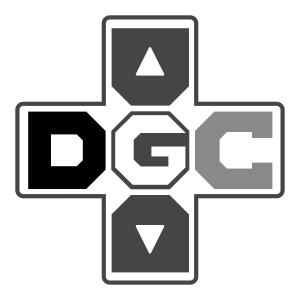
Welcome to Dev Game Club, where this week we complete our series on Eye of the Beholder. We talk more about D&D adaptation, spend some time with a sequel, and get to our takeaways before emptying the mailbag. Dev Game Club looks at classic video games and plays through them over several episodes, providing commentary.
Issues covered: which levels count in the sequel, killing lots of beholders, whether you could have killed Xanathar in the original, striation of hit point values, scaling for sense of power, paying off on the quests, finding all the beholders, beholder physiology, having more fun with beholders as designers, bulettes and basilisks, "just keep going," being trained for level navigation, designing towards the player understanding, wanting coordinates, using simple concepts well, modular repeatable and combinable concepts, leaning into the limitations, an onion layer level, "mapping matters," loving drawing maps, sanding off of friction (various ways of telling the player how to get there), being more embodied in the dungeon, the more you take out the less the experience becomes, allowing for abstraction and having to draw you in other ways, translating D&D, why simulate the math, a bad game to simulate, "what is a saving throw?," using video games to inform the evolution of your tabletop game, emphasizing the human, a more elegant system, dice variance, a useless party experience, usability issues, bad games that were influential on us, remembering movie moments but not the gameplay, even bad actors are better than what we could do at the time, digging into all the RPGs, not knowing what to do in SimCity, DOS vs Mac music and early audio, a craftman's respect for audio, warm analog music, hearing multiple versions of the same soundtrack, not playing a lot of real-world games, physics in games and pitting against fun, wanting to get to specific rides vs how you build a park, Tim gets turned off on the CRPG book, building on foundations and the legacies they carry, business concerns, shipping code passing cert, climbing uphill to make changes, maintaining the feel.
Games, people, and influences mentioned or discussed: Eye of the Beholder II, Winnie the Pooh, The Dungeon Run, Metal Gear Solid (obliquely), Wolfenstein 3D, DOOM (1993), Gary Gygax, PS5, Xbox Series X, Dark Souls, Temple of Elemental Evil, Indiana Jones (series), Far Cry 2, Starfighter, Jurassic Park, Ultima Underworld, God of War, Baldur's Gate (series), World of Warcraft, William Shatner, Vampire: the Masquerade, Call of Cthulhu, Mechwarrior, Mechassault, Warhammer, Morrowind, Fallout, Diablo, Westwood, Ashton Herrmann, Kyrandia (series), Lands of Lore, Trespasser, Clint Hocking, Assassin's Creed (series), Darkstone, Neverwinter Nights, Kingdom Hearts, Twisted Metal Black, Warcraft II, Quake, MYST, Grim Fandango, The 7th Guest, NextGen, Sam Thomas, The CRPG Book, Skyrim, The Bard's Tale, Disco Elysium, Rogue, Betrayal at Krondor, Cobra Mission: Panic in Cobra City, Andrew, SimCity 2000, GameBoy, MegaMan, NES/SNES/N64, Grant Kirkhope, GoldenEye 007, Metroid (series), Half-Life (series), Rollercoaster Tycoon, The Matrix, Disneyworld, Great Adventure, Canobie Lake Park, Dungeon Master, Chris, Populous (series), Dungeon Master, Fallout 3, mysterydip, Commander Keen, Dwarf Fortress, Metroid Prime, Bethesda Game Studios, Halo (series), Bungie Studios, Tomb Raider, Galleon, Toby Gard, Redguard, Reed Knight, Todd Howard, Starfighter, Grand Theft Auto (series), Starfield, Unreal (series), Gears of War, Republic Commando, Jack Mathews, Mark Haigh-Hutchinson, Kirk Hamilton, Aaron Evers, Mark Garcia.
Next time:
Our next game?
Links:
The CRPG Book
Dungeon Master Encyclopedia and video
Twitch: brettdouville or timlongojr, instagram:timlongojr, Twitter: @timlongojr and @devgameclub
Discord
DevGameClub@gmail.com
More Episodes
 2024-11-06
2024-11-06
 2024-10-30
2024-10-30
 2024-10-23
2024-10-23
 2024-10-16
2024-10-16
 2024-10-09
2024-10-09
 2024-10-02
2024-10-02
 2024-09-04
2024-09-04
 2024-08-28
2024-08-28
 2024-08-14
2024-08-14
 2024-08-07
2024-08-07
 2024-08-01
2024-08-01
 2024-07-24
2024-07-24
 2024-07-17
2024-07-17
 2024-07-10
2024-07-10
 2024-07-03
2024-07-03
 2024-06-26
2024-06-26
 2024-06-19
2024-06-19
Create your
podcast in
minutes
- Full-featured podcast site
- Unlimited storage and bandwidth
- Comprehensive podcast stats
- Distribute to Apple Podcasts, Spotify, and more
- Make money with your podcast
It is Free
- Privacy Policy
- Cookie Policy
- Terms of Use
- Consent Preferences
- Copyright © 2015-2024 Podbean.com




